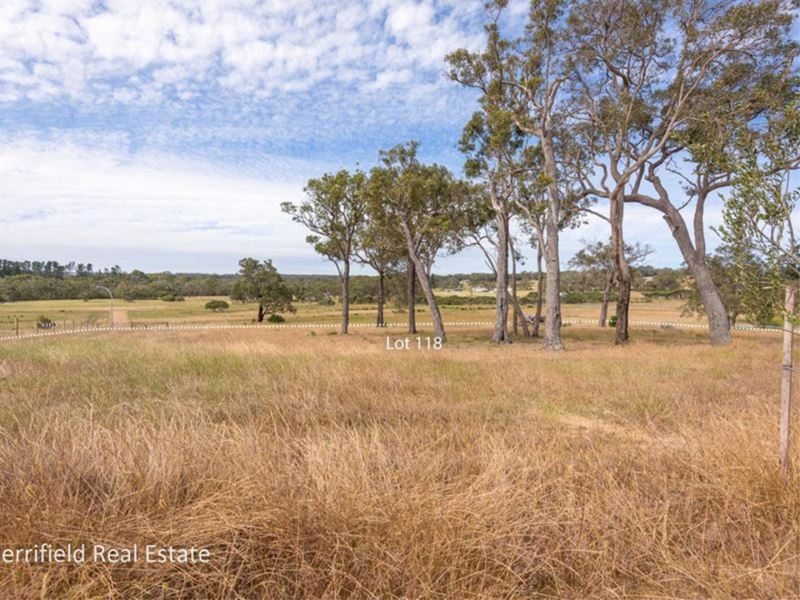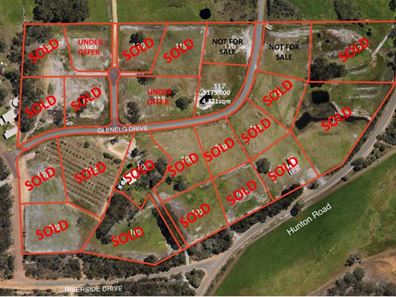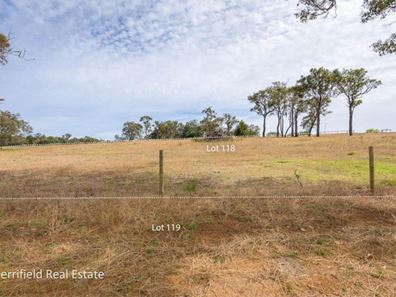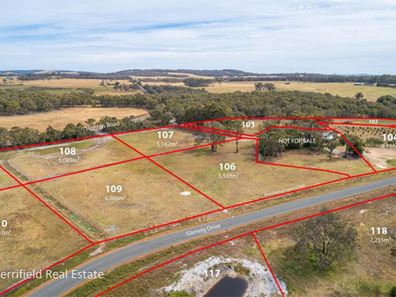OH THE POSSIBILITIES
One of Albany’s newest, and most exciting, land releases is of sizeable parcels of picturesque and historic land near the Kalgan River.
Homebuilders demanding space for an extensive home and sheds, as well as appreciating a country lifestyle within an approximate 20-minute commute of the city, are sure to warm to the many desirable characteristics of Olive Grove Estate.
An outstanding aspect of this development is its diversity, with a wide-ranging choice of block sizes and types.
The estate consists of 21 sites plus the cottage – with 1 lot remaining – ranging from 4,052sqm to 1.31ha and priced from $175,000 to $250,000.
Some are completely cleared; others have native vegetation remaining for shelter and character, and a few have dams.
Topography is mainly flat and gently sloping towards the Kalgan River running to the north-west of the estate.
Most blocks span Glenelg Drive while others are accessed via Hunton Road, Myola Drive or Riverside Drive, which are almost entirely sealed roads. Some are battleaxe blocks set back from the road for privacy and seclusion. Lot 104 is planted with mature, fruiting olive trees.
The lots are fenced with post and ringlock and all available services are at the boundary.
To preserve the integrity of this highly desirable estate and ensure land use and development enhance the function of the precinct, building is subject to the City of Albany’s Kalgan Rural Village Structure Plan. This plan, which instills confidence in buyers, details such safeguards as building setbacks from boundaries and permissible construction materials.
The estate is also protected by a specific bushfire management plan.
Take a walk on the blocks to explore the possibilities offered by each one. Then secure your choice of these select properties while deciding on the aspect and stunning design of your new home and planning your use for the land.
Supersized blocks near the Kalgan River are sure to draw the attention of executives, retiring farmers and buyers wanting a rural lifestyle without sacrificing amenities within a reasonable drive.
A few minutes away from Great Southern Grammar and close to the fishing, water activities and walk tracks of this beautiful part of the region, Olive Grove Estate holds wide appeal.
So contact the expert in Olive Grove Estate, Kyle Sproxton, on 0438 880 439 today before they're all gone.
What you need to know:
- New residential land release near Kalgan River
- Diverse choice of lifestyle blocks from 4,052sqm to 1.31ha
- Priced from $175,000 to $250,000
- 1 remaining from 21 blocks
- Some cleared; others with native trees for shelter
- Some with soaks/water sources
- All services at boundary
- Ringlock and post fencing throughout
- Integrity protected by City of Albany’s Kalgan Rural Village Structure Plan
- Bushfire management plan in place
- Suit executives, retiring farmers, rural dwellers, first home buyers
- Approx. 20-minute commute to city
- Few minutes’ drive to Great Southern Grammar
- Near fishing, water activities and walk tracks
Listing snapshot by reiwa.com
This land listing located in Kalgan was sold by Kyle Sproxton at Merrifield Real Estate.
If you would like to get in touch with Kyle Sproxton regarding Lot 118, Glenelg Drive, Kalgan, please call 0438 880 439 or contact the agent via email.
Nearby schools
Kalgan overview
The townsite of Kalgan is located in the south coastal region, about 21 kilometres northeast of Albany. It was gazetted a townsite in 1912 following the opening up of land in the area, but land had been put aside for a townsite here in 1837. The place was named "Wyndham" on an 1839 map of the area, but there was no subdivision or land made available in the townsite. It is recorded that it was to be the site of a farming community for the Society of Friends (Quakers), but there is no evidence that any Quakers ever settled in the area.
As there was already a Wyndham in the Kimberley when the town was gazetted in 1912, the name Kalgan was chosen for the townsite. Kalgan is the Aboriginal name of the river on which the townsite is situated, the name being first recorded by the explorer Dr A Collie as "Kalgan-up" in 1831. It is said to mean "place of many waters". The river had earlier been referred to as the "French River", since the French explored it in 1803.





